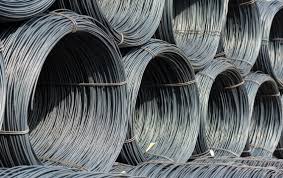Stainless wire, a versatile material made from pvc coated stainless wire rope, is widely used across various industries due to its exceptional properties. This article delves into the characteristics, applications, benefits, and different types of stainless wire, highlighting why it is a preferred choice in many sectors.
Characteristics of Stainless Wire
Stainless wire is composed primarily of iron, chromium, nickel, and other alloying elements. The addition of chromium provides corrosion resistance, while nickel enhances toughness and strength. Depending on the intended use, other elements like molybdenum and titanium can be added to improve specific properties such as resistance to pitting and crevice corrosion.
Key Properties:
- Corrosion Resistance: The chromium content in stainless wire forms a passive layer of chromium oxide on the surface, preventing further corrosion.
- High Tensile Strength: Stainless wire can withstand significant mechanical stress, making it suitable for demanding applications.
- Temperature Resistance: It maintains its strength and form at both high and low temperatures.
- Durability: Stainless wire is known for its long lifespan and minimal maintenance requirements.
- Aesthetic Appeal: It has a shiny, attractive appearance, making it suitable for decorative applications.
Applications of Stainless Wire
Stainless wire is employed in various industries due to its adaptability and reliability. Some common applications include:
- Medical Industry: Stainless wire is used in surgical instruments, orthodontic appliances, and medical implants due to its biocompatibility and corrosion resistance.
- Automotive Industry: It is utilized in the manufacture of exhaust systems, springs, and other components that require durability and resistance to high temperatures.
- Construction: Stainless wire is used in reinforcing structures, creating wire mesh, and as a component in tension cables for bridges and buildings.
- Marine Industry: Its resistance to saltwater corrosion makes it ideal for marine applications such as rigging, mooring lines, and fishing nets.
- Aerospace Industry: Stainless wire is used in the production of aircraft components due to its high strength-to-weight ratio and ability to withstand extreme conditions.
- Electronics: It is used in the manufacturing of various electronic components, including connectors and resistors, due to its excellent electrical conductivity and resistance to oxidation.
Benefits of Stainless Wire
The advantages of using stainless wire are numerous, contributing to its widespread adoption across different sectors:
- Longevity: Stainless wire’s durability and resistance to environmental factors ensure a long service life, reducing the need for frequent replacements.
- Cost-Effectiveness: While the initial cost may be higher than other materials, its longevity and low maintenance requirements make it a cost-effective choice in the long run.
- Versatility: Available in various grades and finishes, stainless wire can be tailored to meet specific requirements, making it suitable for a wide range of applications.
- Hygiene: Its smooth surface is easy to clean, making it ideal for applications in the food, beverage, and medical industries where hygiene is crucial.
- Sustainability: Stainless steel is 100% recyclable, contributing to environmental sustainability by reducing waste and conserving resources.
Types of Stainless Wire
Stainless wire comes in different grades, each designed to meet specific needs:
- 304 Stainless Wire: Known for its excellent corrosion resistance and weldability, it is the most commonly used grade for general applications.
- 316 Stainless Wire: Contains molybdenum, which enhances corrosion resistance, especially in marine environments. It is also used in chemical processing equipment.
- 430 Stainless Wire: Offers good corrosion resistance and formability but is less durable than 304 and 316. It is commonly used in decorative applications and household appliances.
- 17-7 PH Stainless Wire: This precipitation-hardening stainless steel provides high strength and hardness, making it suitable for aerospace and other high-stress applications.
Conclusion
Stainless wire is a crucial material across various industries due to its remarkable properties such as corrosion resistance, high tensile strength, and durability. Its wide range of applications and benefits make it an invaluable component in modern manufacturing and construction. Understanding the different types and their specific uses allows industries to leverage the advantages of stainless wire, ensuring efficiency, reliability, and sustainability in their operations.


